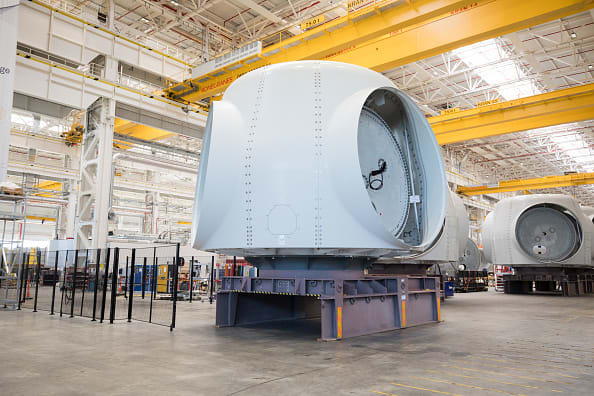As coronavirus impacts renewables, Siemens Gamesa suspends guidance

[ad_1]
Jörg Sarbach | picture alliance | Getty Images
In the latest example of how the coronavirus pandemic is affecting the renewable energy sector, wind turbine firm Siemens Gamesa Renewable Energy (SGRE) has withdrawn financial guidance for the 2020 financial year.
In a statement dated April 21, SGRE said the “uncertainty associated with COVID-19” was “compounding challenges in India and Northern Europe.”
SGRE joins Danish wind turbine manufacturer Vestas — which this week announced its decision to lay off around 400 employees — in suspending guidance for 2020.
In an announcement earlier this month, the Aarhus-headquartered firm noted that the global spread of Covid-19 and national measures taken to contain it had caused disruptions to installations, manufacturing and its supply chain.
The situation for SGRE is similar. The company said “COVID-19 disruptions” in its supply chain, manufacturing operations, project execution and commercial activity had “primarily affected and adversely impacted the situation” in its onshore business.
In addition, it said offshore and service operations “might” see some disruptions across the coming months, but that these were “so far expected to be significantly lower.”
The impact of the pandemic on the renewable energy sector is widespread. On Wednesday, research and consultancy firm Wood Mackenzie said as much as 150 gigawatts of solar and wind projects in the Asia-Pacific region could be either delayed or canceled between 2020 and 2024 if the “coronavirus-led recession” continued past this year.
“The extent of the coronavirus impact on Asia Pacific markets is key to the future growth of the renewables sector,” Alex Whitworth, a research director at Wood Mackenzie, said in a statement.
“Over the last five years (2015 – 2019), the Asia Pacific region accounted for over three-quarters of global power demand growth, while leading the world in wind and solar capacity installations,” he added.
“The coming months will be crucial to determine if the region is moving towards a rapid recovery or extended recession future.”
Source link





